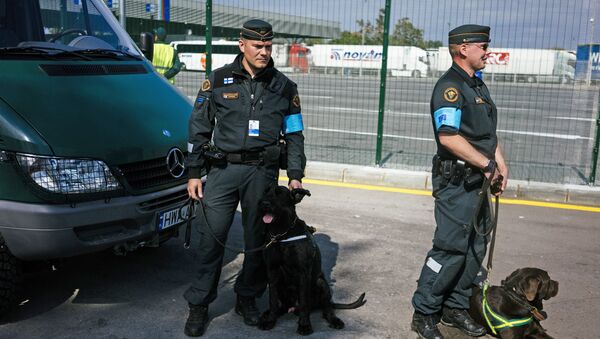While the proposed measures are said to also combat illegal immigration, people smuggling and hostage scenarios, it is obvious that the fictitious "Russian threat" was the main reason behind them, as Finland's recent actions clearly indicate.
Last week, Finland passed a law outlawing so-called "little green men," or military forces operating without recognizable insignia, which in Scandinavia came to imply Russian soldiers. Earlier this week, Finland was reported to revive its Cold War-era system of tunnels and bunkers in the metropolitan area in a bid to survive the ludicrous possibility of a Russian attack.
The Border Guard's legal chief of staff Ari-Pekka Koivisto made no secrets as he attributed the measures to Crimea's re-unification with Russia, which in Nordic political circles is perceived as "occupation." Koivisto called it a "wake-up call" for the monitoring of Finland's frontiers.
One of the most eye-catching changes proposed in the bill is to use military conscripts as backup. At present, only Border Guard trainees and students of the Border Guard and Coast Guard Academy are eligible as crisis support.
Among other extra powers, the Border Guard will be given the right to utilize covert information-gathering techniques, such as tapping mobile phone network base stations, located in the vicinity of border crossing points.
Guards will also be allowed to jam mobile telecommunication networks in order to make it harder for "little green men" to coordinate their actions. Only the Finnish authorities' encrypted Virve network would remain unaffected by jammers.
"Hybrid threats typically escalate very quickly and are difficult to anticipate," deputy commander Jaakko Olli from the South-East Finland Border Guard told Yle. "These new powers will allow us to react to situations quicker and more effectively, even in everyday conditions," he said.
The bill will be discussed in parliament in the autumn, and is expected to come into effect in the spring of 2018.
Earlier this year, NATO and the EU signed an agreement on establishing a European Centre of Excellence to counter hybrid threats in Helsinki.
The Helsinki Center is expected to become a complement to Stratcom's similar centers in Tallinn, Estonia and Riga, Latvia, both of which are undisguised NATO outposts in the battle against the perennial "Russian threat."





